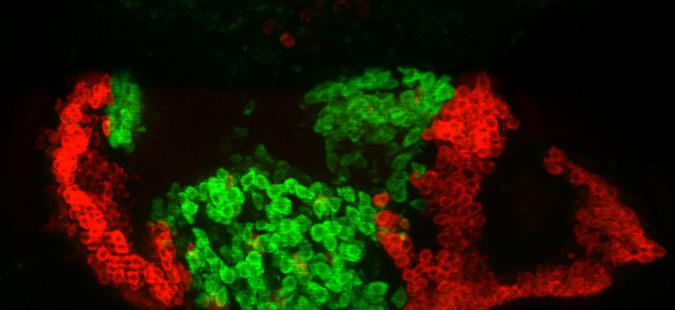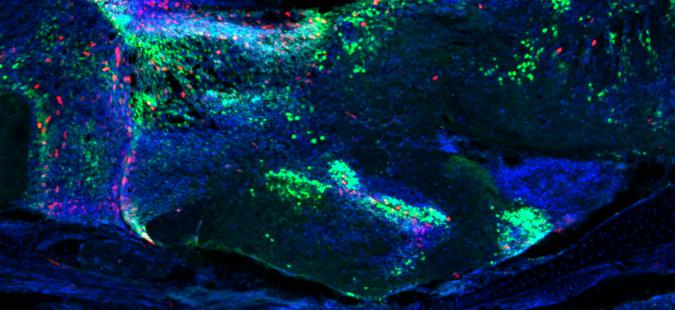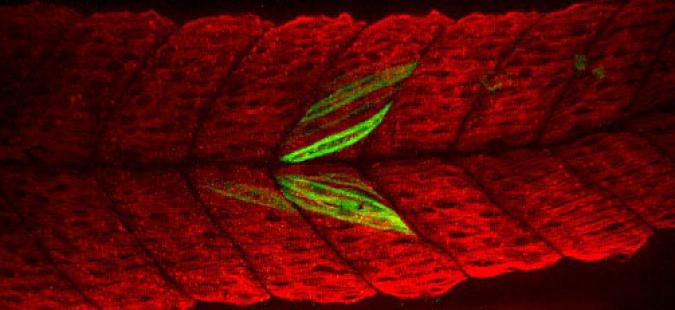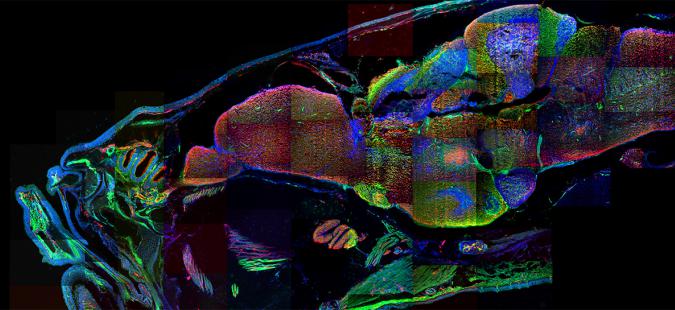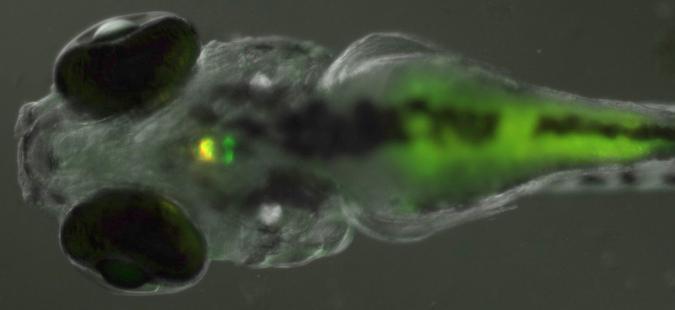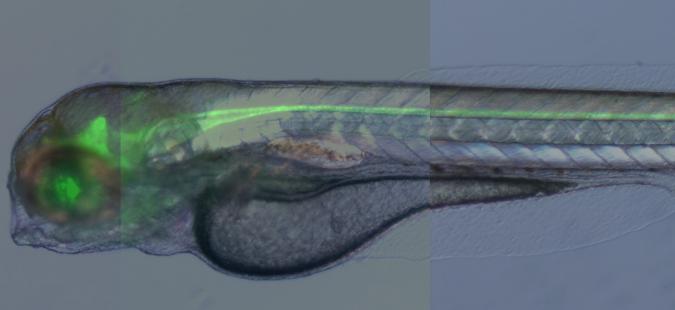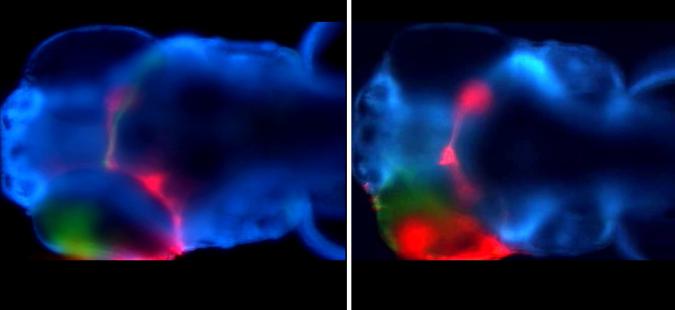The Karlstrom laboratory uses the zebrafish as a “simple” vertebrate system (its really not that simple) to study how the forebrain and pituitary gland form during embryogenesis, and to examine the signaling systems that control post-embryonic brain growth and neurogenesis. We focus on cell-cell signaling systems and have developed conditional gene regulation tools that allow us to manipulate Sonic Hedgeghog (Shh) signaling throughout the life cycle. Accessible and rapid early development, a complete genetic toolbox for studying gene function in vivo, and the ability to generate fluorescent transgenic lines, are just some of the features that make the zebrafish a powerful model system and teaching tool. The basic cellular mechanisms that guide embryonic development and tissue renewal are remarkably conserved across vertebrate species, making these studies in zebrafish applicable to humans. Given the critical importance that embryonic cell signaling systems play in both adult tissue renewal (e.g. stem cell regulation) and disease (e.g. cancer), studies in zebrafish are increasingly providing important mechanistic information needed to understand and treat human disease.
Contact Information:
Department of Biology
University of Massachusetts
Amherst, MA 01003 9297
Lab Phone:(413) 577-3456
Office Phone: (413) 577-3448
email: karlstrom@bio.umass.edu
